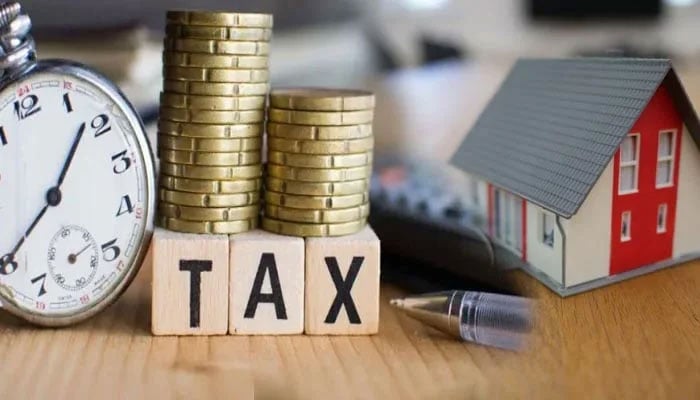Tax reforms
LAHORE: Times are bad and immediate improvement is not in the cards. As Nawaz Sharif has said, in the first two years the government will have to take hard decisions to be able to deliver thereafter.
There seems to be a difference between the hard decisions that the ruling coalition and its leaders think are necessary and what the public at large desires. For the ruling elite, increasing taxes, particularly sales tax and utility rates, are hard decisions. For the public at large, booking smugglers, hoarders and under filers is essential. If unethical incomes continue to plague our economy, the higher revenues would be of no use. The first priority must be to apprehend tax evaders.
Another aspiration of the men in the street is to see their rulers adopting a simple life. The concept that rulers have the right to enjoy the luxuries of life at government expense must go. In fact, the rulers are elected to serve the people. Anyone holding a public post should live simply and avoid luxury of any type, even from his/her own resources. There should be no VIP protocols with fleets of cars moving with the ruling elite. There should be no disturbance of traffic when they move around. They should live in modest residences and not palace-like mansions.
Taxation must be direct because it is the direct taxation that hits the rich. The indirect taxes are passed on to the consumers. Indirect taxation could be very high on cars, electronic gadgets and items of luxury. In order to avoid the impact of under invoicing, there should be a fixed tax on imported items equivalent to the sales tax paid by domestic manufacturers on similar items. Is it not strange that the domestic tyre manufacturers pay higher sales tax than imported tyres of similar dimension? Or that the imported tiles pay less sales tax than domestic tiles? The invoice value should be determined from the sales tax collected on imports. This single step would add 3.7 trillion in revenues based on missing Chinese import data of $10 billion. Under invoicing from other sources would add another hefty amount in the kitty.
But taking this step would create an uproar because almost all commercial imports in Pakistan are highly under invoiced. The importers are highly influential persons. They would cry foul although they are committing a foul. The government will face difficulty in any measure it takes to increase revenue. But curbing under-invoicing under a fair and transparent system would lift our economy quickly. Our domestic industry would revive and jobs that were exported to the countries from where under-invoiced items come would come back to Pakistan.
However, under-invoicing is not the only issue in our trade. Smuggling is another big problem. The FBR has been unable to control smuggling. The revenue department lowered the duties on smuggling prone items to curb it. This has not worked because the major collection from imports comes from sales tax which is collected on duty paid value. Sales tax rate is almost double the average import duty in Pakistan. The government cannot abdicate its authority by ignoring smugglers. The traders must be banned from selling smuggled goods with regular raids on avenues where smuggled goods are sold. Pakistan cannot survive if the smuggling and open sale of smuggled goods is not curbed.
-
 Katherine Schwarzenegger Shares Sweet Detail From Early Romance Days With Chris Pratt
Katherine Schwarzenegger Shares Sweet Detail From Early Romance Days With Chris Pratt -
 Jennifer Hudson Gets Candid About Kelly Clarkson Calling It Day From Her Show
Jennifer Hudson Gets Candid About Kelly Clarkson Calling It Day From Her Show -
 Princess Diana, Sarah Ferguson Intense Rivalry Laid Bare
Princess Diana, Sarah Ferguson Intense Rivalry Laid Bare -
 Shamed Andrew Was With Jeffrey Epstein Night Of Virginia Giuffre Assault
Shamed Andrew Was With Jeffrey Epstein Night Of Virginia Giuffre Assault -
 Shamed Andrew’s Finances Predicted As King ‘will Not Leave Him Alone’
Shamed Andrew’s Finances Predicted As King ‘will Not Leave Him Alone’ -
 Expert Reveals Sarah Ferguson’s Tendencies After Reckless Behavior Over Eugenie ‘comes Home To Roost’
Expert Reveals Sarah Ferguson’s Tendencies After Reckless Behavior Over Eugenie ‘comes Home To Roost’ -
 Bad Bunny Faces Major Rumour About Personal Life Ahead Of Super Bowl Performance
Bad Bunny Faces Major Rumour About Personal Life Ahead Of Super Bowl Performance -
 Sarah Ferguson’s Links To Jeffrey Epstein Get More Entangled As Expert Talks Of A Testimony Call
Sarah Ferguson’s Links To Jeffrey Epstein Get More Entangled As Expert Talks Of A Testimony Call -
 France Opens Probe Against Former Minister Lang After Epstein File Dump
France Opens Probe Against Former Minister Lang After Epstein File Dump -
 Last Part Of Lil Jon Statement On Son's Death Melts Hearts, Police Suggest Mental Health Issues
Last Part Of Lil Jon Statement On Son's Death Melts Hearts, Police Suggest Mental Health Issues -
 Leonardo DiCaprio's Girlfriend Vittoria Ceretti Given 'greatest Honor Of Her Life'
Leonardo DiCaprio's Girlfriend Vittoria Ceretti Given 'greatest Honor Of Her Life' -
 Beatrice, Eugenie’s Reaction Comes Out After Epstein Files Expose Their Personal Lives Even More
Beatrice, Eugenie’s Reaction Comes Out After Epstein Files Expose Their Personal Lives Even More -
 Will Smith Couldn't Make This Dog Part Of His Family: Here's Why
Will Smith Couldn't Make This Dog Part Of His Family: Here's Why -
 Kylie Jenner In Full Nesting Mode With Timothee Chalamet: ‘Pregnancy No Surprise Now’
Kylie Jenner In Full Nesting Mode With Timothee Chalamet: ‘Pregnancy No Surprise Now’ -
 Laura Dern Reflects On Being Rejected Due To Something She Can't Help
Laura Dern Reflects On Being Rejected Due To Something She Can't Help -
 HBO Axed Naomi Watts's 'Game Of Thrones' Sequel For This Reason
HBO Axed Naomi Watts's 'Game Of Thrones' Sequel For This Reason




